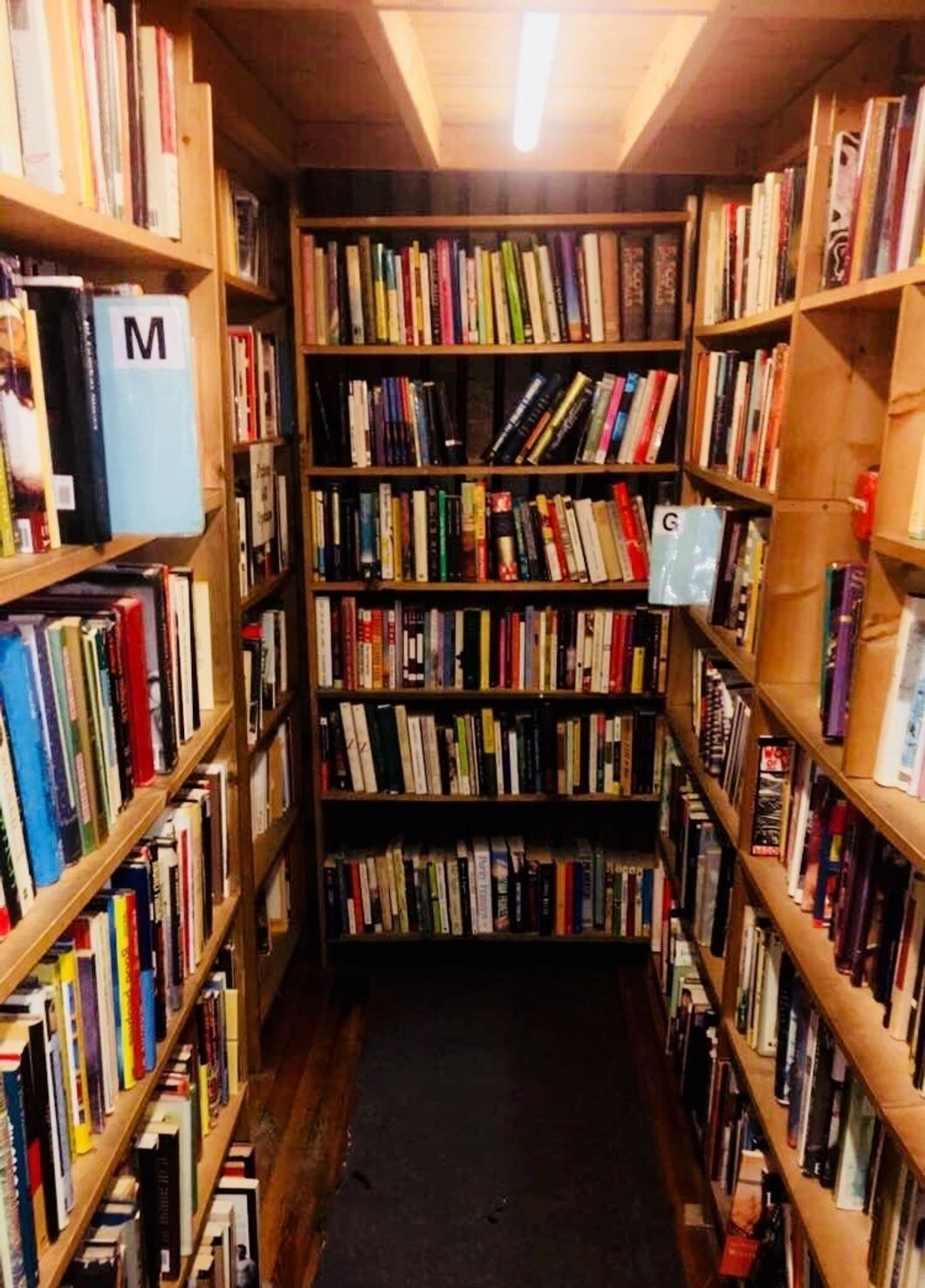Have you ever picked up a book and after simply reading the first sentence, been completely engrossed in the literature that you couldn't put the book down? I know I have. As an English major, I've read more books than I'd care to admit, some for classes, and some just for fun. Regardless of the occasion for my reading, I've found some opening lines so compelling, that I've decided to put together a list of six of the best openers in literature.
1. “Through the fence, between the curling flower spaces, I could see them hitting.”
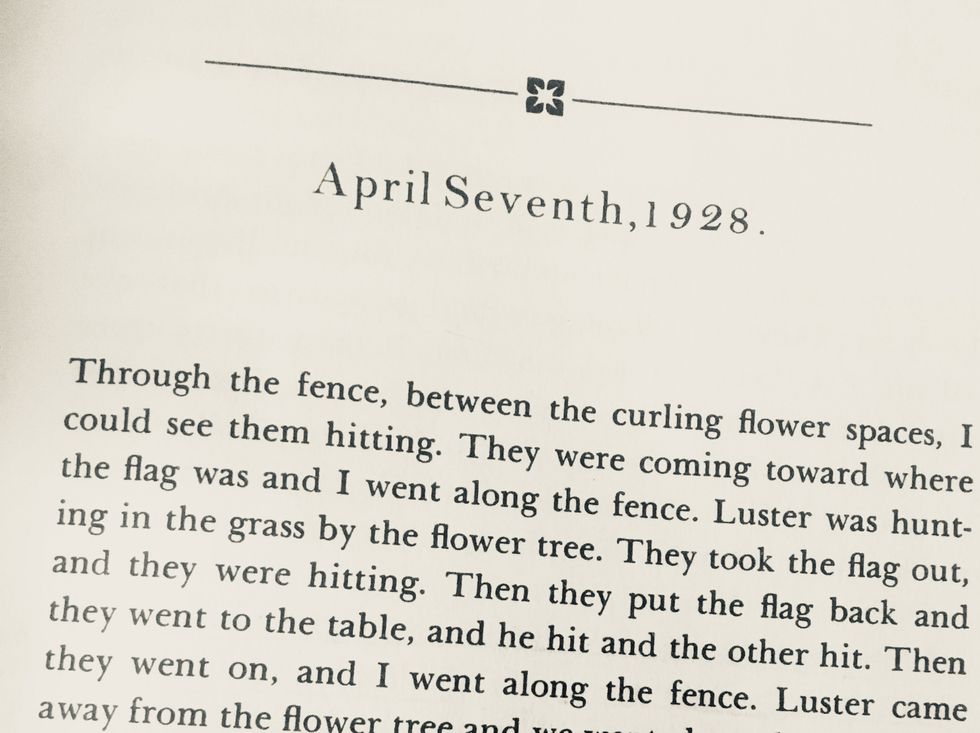
"The Sound and The Fury," William Faulkner
You're probably like, "Hitting? Hitting what? What's a curling flower space? Ughh!" but that's why you absolutely must keep reading! "The Sound and The Fury" is notorious for being a "difficult read," but let me tell you, some challenges are worth fighting through. With a complex narrative structure divided into four sections with each section told from a different perspective and characters who share the same name or have their names changed as the novel unfolds, you'll be forced to think critically about what is being presented to you.
You'll probably want to pull your hair out and fling the book across the room at first, but trust me, it gets easier once you get a grasp on Faulkner's style, and you realize that the time shifts aren't necessarily linear and that he can shift from past tense to present tense in the same line, at any given moment, without any warning (especially in the Benjy section). It's fun in a masochistic type of way!
2. ”It was the best of times, it was the worst of times, it was the age of wisdom, it was the age of foolishness, it was the epoch of belief, it was the epoch of incredulity, it was the season of Light, it was the season of Darkness, it was the spring of hope, it was the winter of despair.”
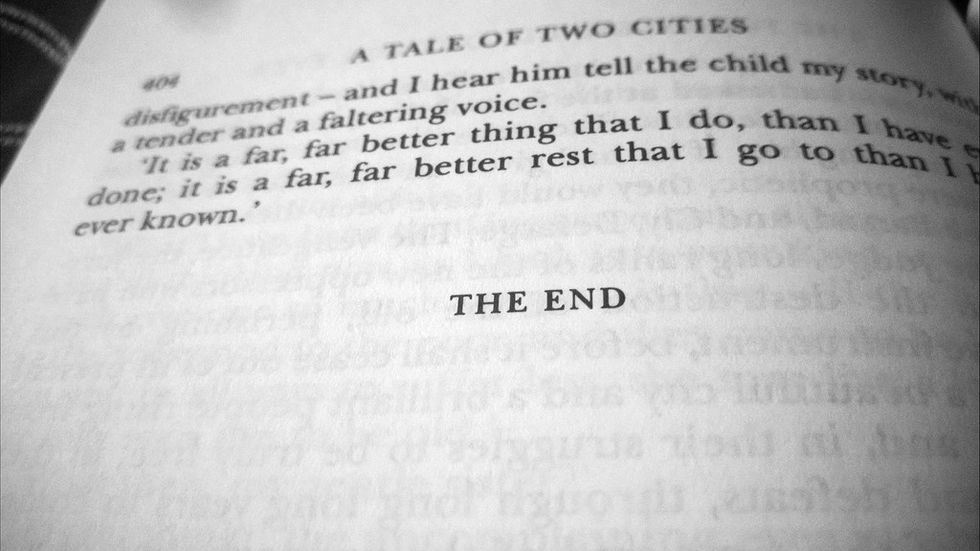
"A Tale of Two Cities," Charles Dickens
Not only does this sentence sound like music to your ears, but it uses tropes like repetition and juxtaposition so beautifully. The rest of the novel also employs many stylistic aspects of language, such as metaphor, irony, and allegory. If you love the nuances of the English language, you'll definitely love Dickens' style.
3. ”If you really want to hear about it, the first thing you’ll probably want to know is where I was born, and what my lousy childhood was like, and how my parents were occupied and all before they had me, and all that David Copperfield kind of crap, but I don’t feel like going into it, if you want to know the truth.”
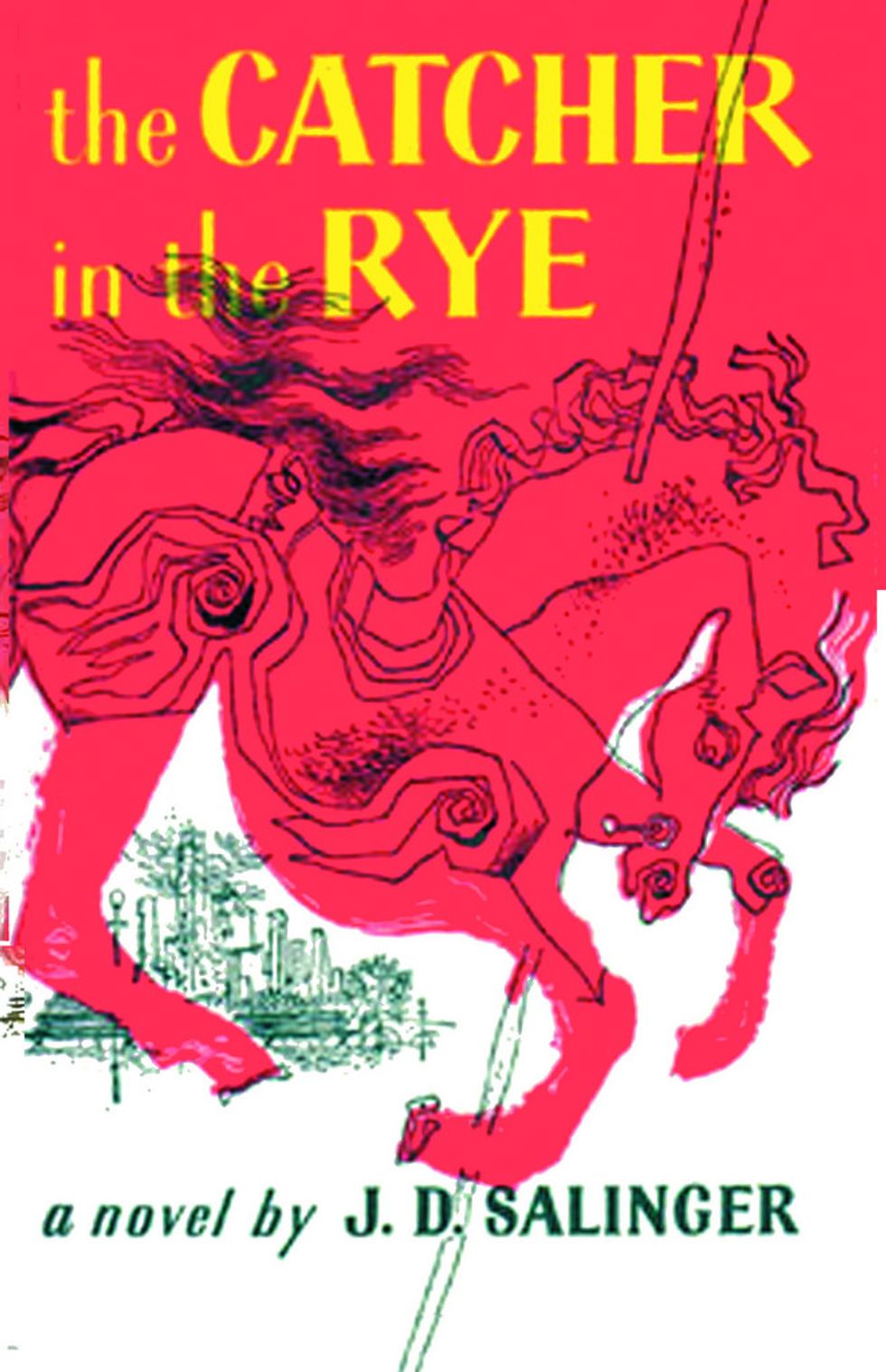
"The Catcher in The Rye," J.D. Salinger
Need I elaborate on why this is a great first line? Its bluntness and matter-of-factness is so refreshing and so unlike a lot of acclaimed novels, but that makes it absolutely wonderful. Sometimes you need to stray away from figurative language (No offense to Dickens―I love him.).
4. ”It was a pleasure to burn.”
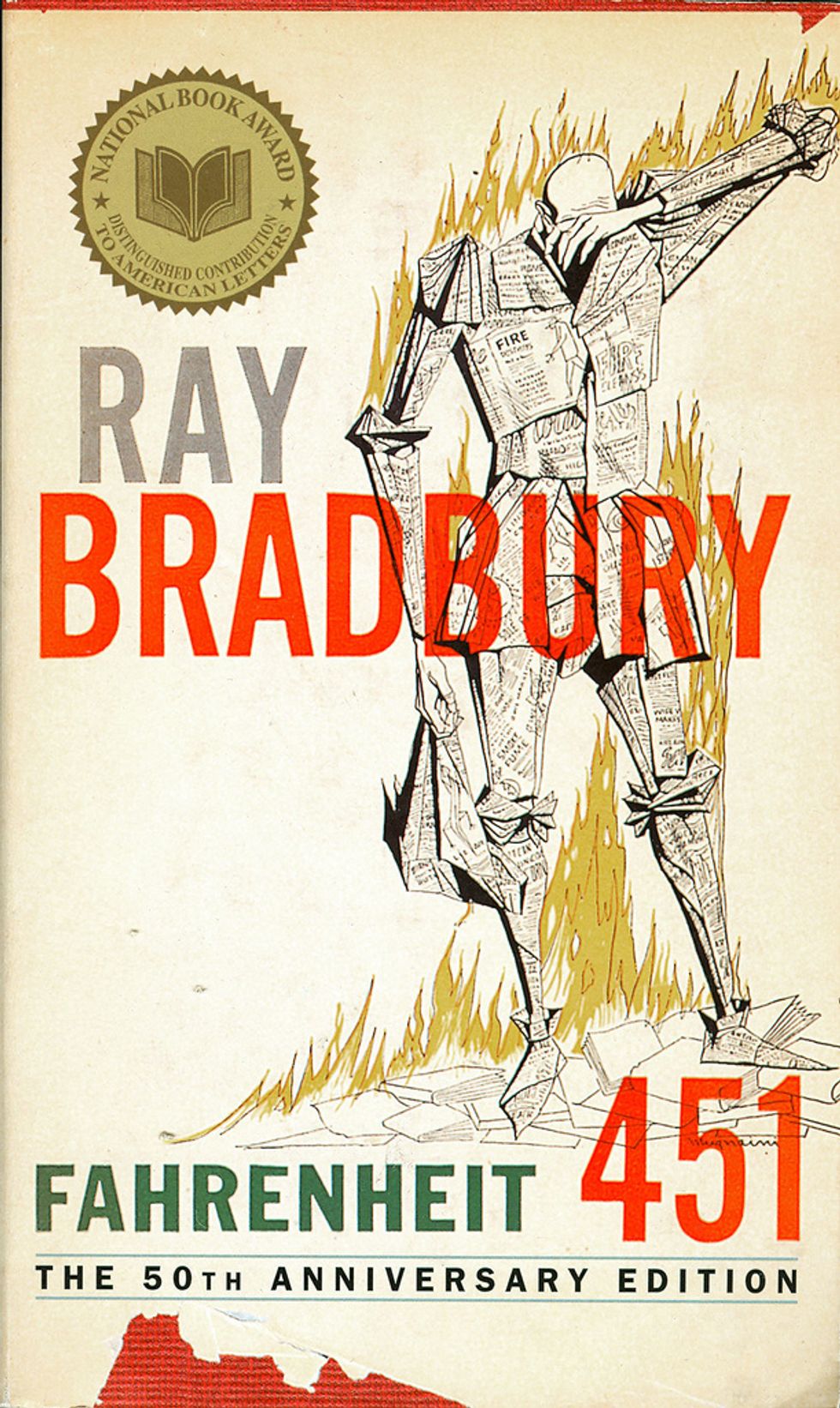
"FAHRENHEIT 451," Ray Bradbury
I think this line speaks for itself. Not only does it ignite thought the way a fire ignites, but it addresses key issues, such as the notion of censorship, early on. The firefighters find pleasure in burning books and the houses of those who own books. It's pretty ironic that the firefighters are the ones causing the fire in this scenario, and if that isn't motivation enough to want to read it, I don't know what is!
5. “It was a bright cold day in April, and the clocks were striking thirteen.”
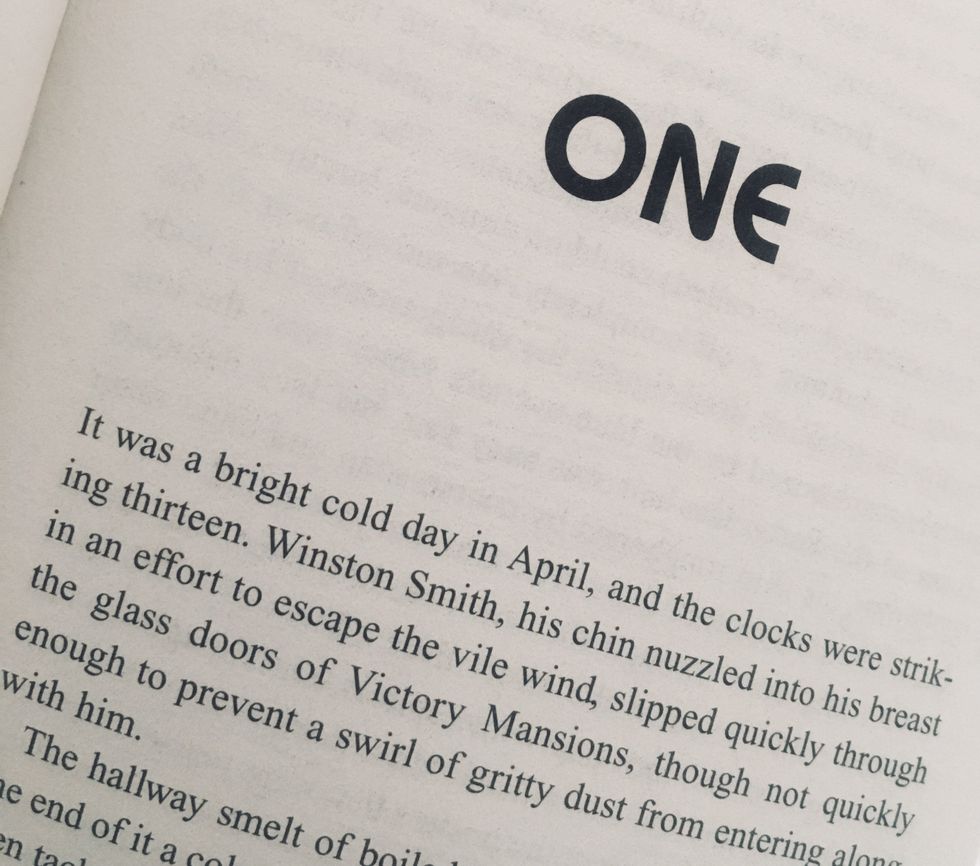
"1984," George Orwell
Striking thirteen? What? Orwell immediately grabs your attention, and might I add, holds it for the entirety of the novel. Analog clocks don't "strike thirteen." Thirteen is an unlucky number. Is it really a bright day in April? This line sparks curiosity from the get-go and makes you ask so many questions that you can't possibly put the book down. Aside from a great first sentence, the novel also illuminates the idea of language as a control mechanism and the notion around lack of privacy and security that one may find gravely relevant today, so it's definitely worth a read!
6. "Now is the winter of our discontent / Made glorious summer by this sun of York; And all the clouds that lour'd upon our house / In the deep bosom of the ocean buried."
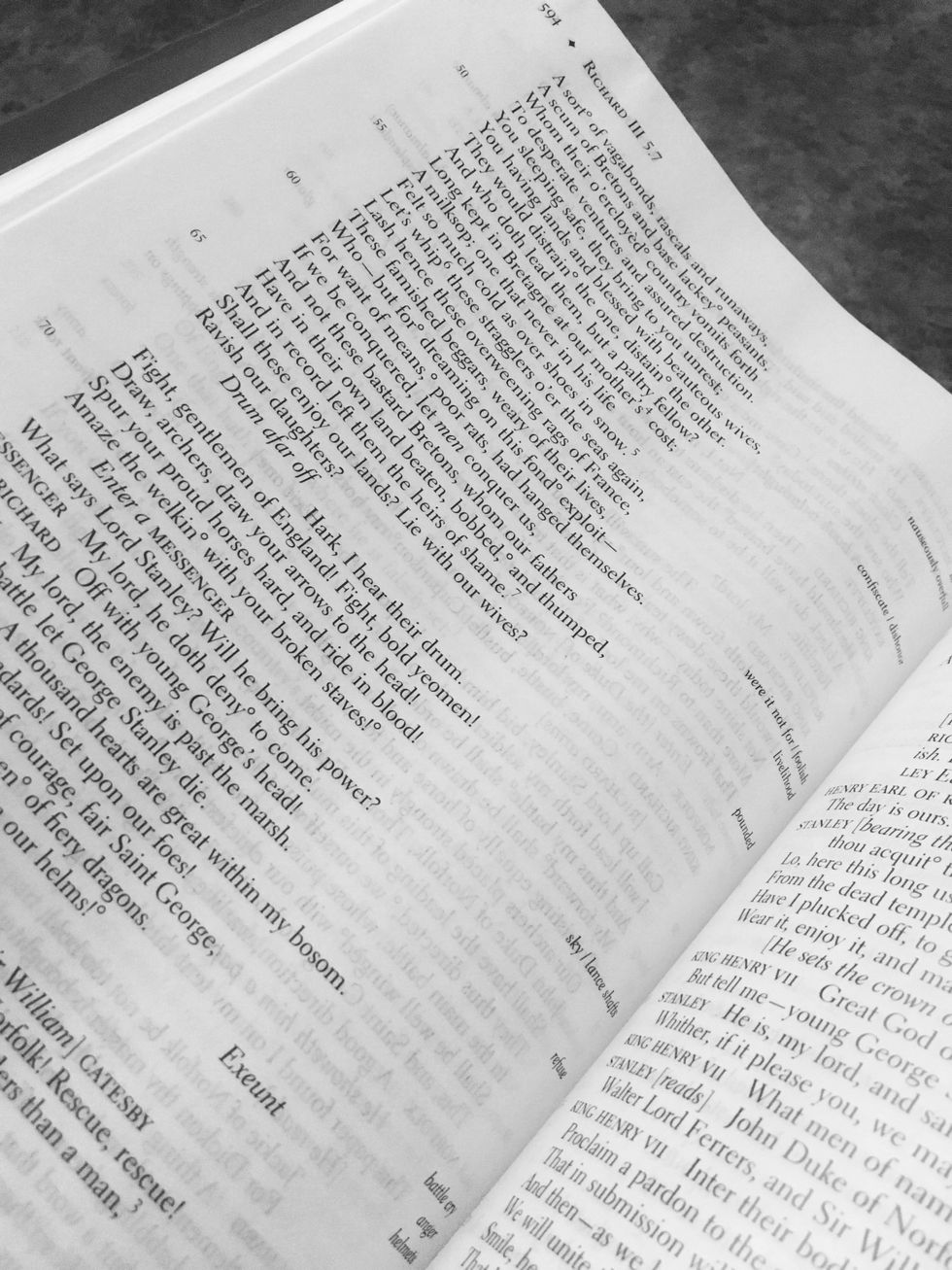
"Richard III," William Shakespeare
Okay, I couldn't possibly write an article about great literature and not include the legendary Shakespeare. This line is great because it not only sets the tone for the rest of the play, but the irony in the first line is prepossessing. Richard speaks of his brother's claim to the throne as bringing a positive energy to the disappointing, dreary war-filled winter, but we all know that's not what happens―Richard becomes the epitome of violence, wreaking havoc to those around him, especially in his elaborate plot to murder his brother, the rest of his family, and his only friend. I'm sorry, did I just spoil it for you?
There are so many works of literature that have great first lines, or become great as the narratives progress, but I don't believe they compare to these six absolute masterpieces! I left Hemingway, Joyce, and Fitzgerald—also literary geniuses— out of this list because I couldn't quite decide which of their many amazing works had "the best" first lines. What do you think? Should they have made the list?

